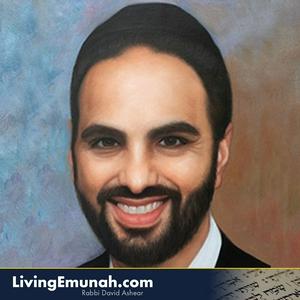No Mistakes in Heaven: Trusting Hashem’s Plan
When our plans are suddenly canceled or unexpected mistakes arise, they often appear to be nothing more than unfortunate coincidences. In such moments, it's natural to feel disappointment or confusion about why things didn't go as expected. However, someone with emunah —faith in Hashem—understands that there is no such thing as a mistake. Everything unfolds precisely as it is meant to, even if the reasons are hidden from us. Most of the time, we're not privileged to see the full picture. We don't always understand why certain events deviate from our carefully laid plans. Yet sometimes, Hashem offers a glimpse behind the scenes, revealing how what seemed like a disruption was actually a necessary step in a greater design. A woman shared her experience from this past Simchat Torah . She had been eagerly preparing for a joyous Yom Tov, anticipating a full house with all her children and grandchildren. She cooked in advance, excited to host the entire family. But on Chol HaMoed , her three teenage sons expressed a strong desire to return to their out-of-town yeshivot for Simchat Torah . Though disappointed, she graciously agreed, recognizing how meaningful it would be for them. Then, on Hoshana Rabbah night, her married son informed her that he had missed his flight home from his in-laws. As a result, he, his wife, and their three children would be spending Yom Tov elsewhere. The vibrant family gathering she had envisioned quickly diminished, leaving her and her husband with unexpected quiet. On a whim, they decided to go to her husband's former yeshiva—where two of their sons would be spending the holiday. A room near the yeshiva became available that night, and they took it. They packed up the food she had lovingly prepared and made the spontaneous trip. Though out of character for them, the experience turned out to be profoundly uplifting. During the Yom Tov, two different people independently suggested a shidduch for their daughter—an alumnus of the very yeshiva they were visiting who was also there for Yom Tov . They followed up on the recommendation, and Baruch Hashem , their daughter is now engaged to that young man. A missed flight, a change of plans, and a last-minute decision to travel—all seemingly minor and natural occurrences—were, in truth, Hashem's orchestration to bring this family to the exact place where their daughter would find her zivug . In another touching story, a man shared how his 10-year-old daughter asked for a special siddur with her name engraved on it. He told her that was a gift he had planned for her bat mitzvah, over a year away. Not wanting to wait, she asked again. He gently explained that it was an expensive item and not something he could give her "just because," but he encouraged her to ask Hashem for it instead. He used the moment to teach her the power of heartfelt tefillah . Inspired, the young girl began praying earnestly each day for that personalized siddur . One day a few months later, her principal called her to her office. While she was there, the principal pulled out a beautiful sidur with her name engraved on it. She explained she bought it for her granddaughter but it was the wrong nusach. Being that the store wouldn't exchange it because the name was already engraved upon it, she was stuck with it. Then she thought of this girl in her school with the exact same name as her granddaughter and offered the sidur to her. And just like that, this 10-year-old girl received the sidur she wanted so badly. It looked like a mistake but we know there are no mistakes. Hashem wanted this girl to have that sidur and this is how He accomplished it. Her sincerity was moving—and a powerful reminder that no prayer is too small or insignificant in Hashem's eyes. Everything that happens is me'et Hashem and if we're able to internalize that, we'll have a much easier time dealing with the unexpected.

